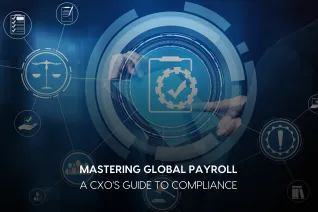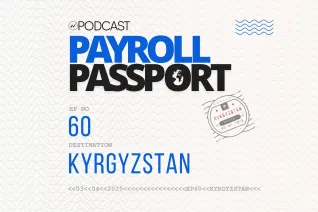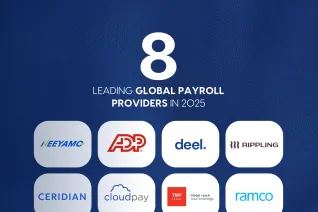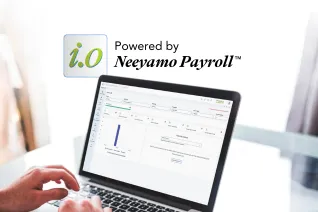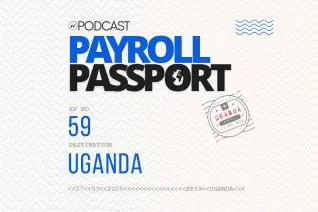Country Spotlight: Payroll in South Korea

Have you ever heard of a Chaebol? Did you know that Samsung is one of the largest Chaebols? So are LG and Hyundai - do you see the pattern?
A Chaebol is a family-run business conglomerate from South Korea. These businesses are currently spearheading South Korea, the tenth-largest economy. By the end of 2022, these companies had accounted for 58% of the GDP, which stood at USD 396.4 billion.
The 1998 Foreign Investment Promotion Act was introduced to nurture and boost foreign investment and provide them with enticing tax incentives. With the incentives they provide, companies are unearthing their hidden potential, and businesses are soaring.
When contemplating the prospect of engaging in business activities in South Korea, it is imperative to evaluate the payroll component as a crucial consideration carefully. Payroll in South Korea is challenging, especially for foreign companies unfamiliar with compliance regulations. Leveraging a comprehensive global payroll solution with local expertise could offer a strategic advantage in navigating regulatory complexities.
Also read | South Korea: A Guideline to Payroll and Employer of Record
Minimum Wage and Overtime
In 2024, the minimum wage in Korea is 9860 KRW per hour and applies to all regions of the country, industries, and sectors. The standard working hours in the country are eight hours per day, 40 hours per week, with a limit of 52 hours, including overtime. Generally, overtime is paid 150% of the salary earned and 200% for night work.
In March 2023, a new reform was introduced by the South Korean Government and is currently being challenged. The government announced plans to increase the maximum weekly work hours to 69 from the original 52. This was met with a lot of backlash from the younger section of the workforce and has forced the government to backtrack on its plans.
The reform was introduced to make work hours more flexible but instead put more pressure on the employees to work overtime. In such a topsy-turvy landscape, companies must switch to an efficient time management system to accurately calculate work hours and compensation.
Leave in South Korea
Another aspect employers must be mindful of is absences and leaves. In the first year, employees are entitled to one day of paid leave for every month they work, and employees who complete one full year of employment at a company are entitled to 15 days of paid leave.
Female employees are entitled to 90 days of maternity leave. Generally, it is 45 days before and after birth. In the case of twins, she will be entitled to 120 days. Fathers are entitled to 10 days of paid leave.
For larger companies, the break is covered partly by the employer and the remainder through governmental or social security contributions. Neeyamo Absence includes custom-defined criteria, leave & absence rules, accrual definitions, entitlements, and validations to assist you in configuring and streamlining complex absence plans easily.
ALSO READ: Next-Generation Payroll Technology: Embracing the Era of Autonomous Global Payroll
Tax and Social Security
Similarly, calculating tax In Korea is also an extensive process. The tax year in Korea runs from 1st January to 31st December every year. The tax laws differ based on whether you are a resident or non-resident.
Residents are subject to taxes on their global income, whereas a non-resident is only accountable for paying the income earned from their employment in Korea. In 2023, the tax applied ranges from 6% for those making less than 12 million KRW to 45% for those making over 1 billion KRW. All the taxes must be paid to the National Tax Service.
The employee tax contributions go towards the National Pension, National Health Insurance, Long-term care insurance, and Employment Insurance. Whereas the employer contributes towards these four and worker accident compensation insurance – collectively known as social insurance scheme- as well as resident tax.
The local income tax rate paid by employees in 2023 starts at 0.60%, and Korean-sourced income that isn't connected with a permanent establishment in the country is subject to a withholding tax of 22%. The government pays this tax on the tenth day of the month.
A single solution to process payroll in South Korea
Effective management of payroll taxes in South Korea requires meticulous adherence to statutory compliances established by the authorities.
Failing to comply with these regulations can result in severe consequences, such as employee complaints and substantial penalties. It is advisable to engage the services of a reputable payroll vendor in South Korea to mitigate these complexities.
A global payroll provider with local expertise can provide invaluable assistance in ensuring precise and timely payroll processing, thereby facilitating smooth business operations.
Fortunately, Neeyamo provides its customers with a Global Payroll Solution powered by native gross-to-net capabilities to streamline processes, enhance accuracy, and ensure companies avoid finding themselves in a sticky situation. Our Global Payroll tech stack allows you to navigate all the intricacies of time, absences, tax specifications, and much more with a straightforward solution.
Ignite your payroll revolution and get to know more at www.neeyamo.com or send us an email at irene.jones@neeyamo.com.
Latest Resources
Stay informed with latest updates
If you're curious and have a thirst for knowledge pertaining to the HR, payroll, and EOR universe, don't miss out on subscribing to our resources.





